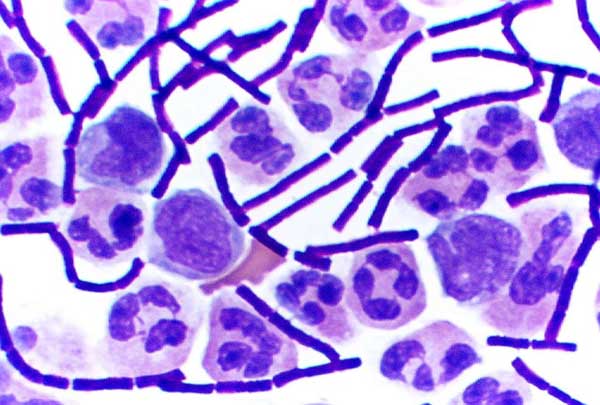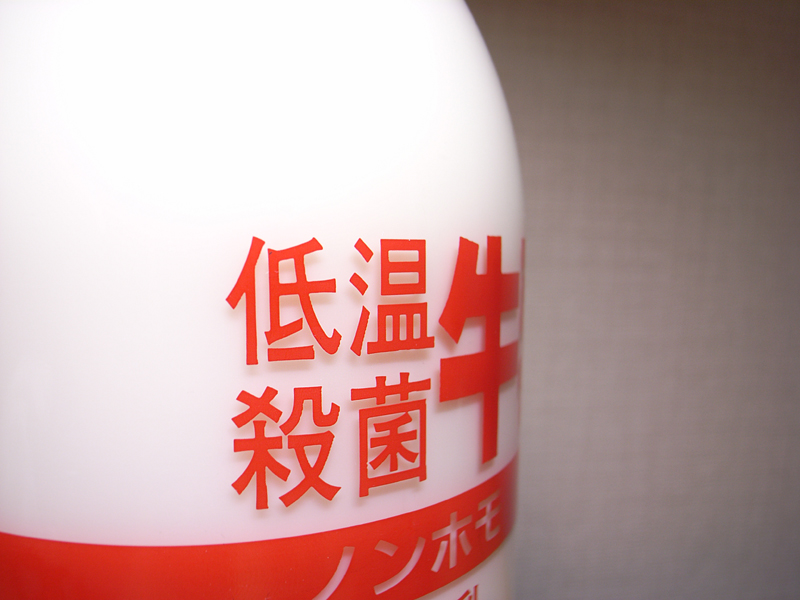|
Ornithinibacillus Bavariensis
''Ornithinibacillus bavariensis'' is a Gram-positive, aerobic, rod-shaped and motile bacterium from the genus of ''Ornithinibacillus'' which has been isolated from pasteurized milk from Bavaria in Germany Germany,, officially the Federal Republic of Germany, is a country in Central Europe. It is the second most populous country in Europe after Russia, and the most populous member state of the European Union. Germany is situated betwe .... References External links Type strain of ''Ornithinibacillus bavariensis'' at Bac''Dive'' - the Bacterial Diversity Metadatabase Bacillaceae Bacteria described in 2006 {{Firmicutes-stub ... [...More Info...] [...Related Items...] OR: [Wikipedia] [Google] [Baidu] |
Bacteria
Bacteria (; singular: bacterium) are ubiquitous, mostly free-living organisms often consisting of one biological cell. They constitute a large domain of prokaryotic microorganisms. Typically a few micrometres in length, bacteria were among the first life forms to appear on Earth, and are present in most of its habitats. Bacteria inhabit soil, water, acidic hot springs, radioactive waste, and the deep biosphere of Earth's crust. Bacteria are vital in many stages of the nutrient cycle by recycling nutrients such as the fixation of nitrogen from the atmosphere. The nutrient cycle includes the decomposition of dead bodies; bacteria are responsible for the putrefaction stage in this process. In the biological communities surrounding hydrothermal vents and cold seeps, extremophile bacteria provide the nutrients needed to sustain life by converting dissolved compounds, such as hydrogen sulphide and methane, to energy. Bacteria also live in symbiotic and parasitic relationsh ... [...More Info...] [...Related Items...] OR: [Wikipedia] [Google] [Baidu] |
Bacillota
The Bacillota (synonym Firmicutes) are a phylum of bacteria, most of which have gram-positive cell wall structure. The renaming of phyla such as Firmicutes in 2021 remains controversial among microbiologists, many of whom continue to use the earlier names of long standing in the literature. The name "Firmicutes" was derived from the Latin words for "tough skin," referring to the thick cell wall typical of bacteria in this phylum. Scientists once classified the Firmicutes to include all gram-positive bacteria, but have recently defined them to be of a core group of related forms called the low- G+C group, in contrast to the Actinomycetota. They have round cells, called cocci (singular coccus), or rod-like forms (bacillus). A few Firmicutes, such as ''Megasphaera'', ''Pectinatus'', ''Selenomonas'' and ''Zymophilus'', have a porous pseudo-outer membrane that causes them to stain gram-negative. Many Bacillota (Firmicutes) produce endospores, which are resistant to desiccation and can ... [...More Info...] [...Related Items...] OR: [Wikipedia] [Google] [Baidu] |
Bacilli
Bacilli is a taxonomic class of bacteria that includes two orders, Bacillales and Lactobacillales, which contain several well-known pathogens such as ''Bacillus anthracis'' (the cause of anthrax). ''Bacilli'' are almost exclusively gram-positive bacteria. The name ''Bacillus'', capitalized and italicized, refers to a specific genus of bacteria. The name Bacilli, capitalized but not italicized, can also refer to a less specific taxonomic group of bacteria that includes two orders, one of which contains the genus ''Bacillus''. When the word is formatted with lowercase and not italicized, 'bacillus', it will most likely be referring to shape and not to the genus at all. Ambiguity Several related concepts make use of similar words, and the ambiguity can create considerable confusion. The term "''Bacillus''" (capitalized and italicized) is also the name of a genus (''Bacillus anthracis'') that, among many other genera, falls within the class Bacilli. The word "bacillus" (or its plur ... [...More Info...] [...Related Items...] OR: [Wikipedia] [Google] [Baidu] |
Bacillales
The Bacillales are an order of Gram-positive bacteria, placed within the Bacillota. Representative genera include ''Bacillus'', ''Listeria'' and ''Staphylococcus''. See also * List of bacteria genera * List of bacterial orders This article lists the orders of the Bacteria. The currently accepted taxonomy is based on the List of Prokaryotic names with Standing in Nomenclature (LPSN) and National Center for Biotechnology Information (NCBI) and the phylogeny is based on 16S ... References Gram-positive bacteria Bacilli {{bacilli-stub ... [...More Info...] [...Related Items...] OR: [Wikipedia] [Google] [Baidu] |
Bacillaceae
The Bacillaceae are a family of gram-positive, heterotrophic, rod-shaped bacteria that may produce endospores. Motile members of this family are characterized by peritrichous flagella. Some Bacillaceae are aerobic, while others are facultative or strict anaerobes. Most are not pathogenic, but ''Bacillus'' species are known to cause disease in humans. Gram-variable cell wall Some Bacillaceae, such as the genera '' Filobacillus, Lentibacillus,'' and '' Halobacillus'', stain Gram-negative or Gram-variable, but are known to have a Gram-positive cell wall.Lim, J.M., Jeon, C.O., Song, S.M., and C.J. Kim. 2005''Pontibacillus chungwhensis gen. nov., sp. nov., a moderately halophilic Gram-positive bacterium from a solar saltern in Korea'' Int. J. Syst. Evol. Microbiol. 55:165-170. Nomenclature Taxa within this family are sometimes colloquially identified as bacilli. However, this term is ambiguous because it does not distinguish between class Bacilli, order Bacillales, family Bacilla ... [...More Info...] [...Related Items...] OR: [Wikipedia] [Google] [Baidu] |
Ornithinibacillus
''Ornithinibacillus '' is a Gram-positive and strictly Aerobic respiration, aerobic genus of bacteria from the family of Bacillaceae. References Further reading * * * Bacillaceae Bacteria genera {{Firmicutes-stub ... [...More Info...] [...Related Items...] OR: [Wikipedia] [Google] [Baidu] |
LPSN
List of Prokaryotic names with Standing in Nomenclature (LPSN) is an online database that maintains information on the naming and taxonomy of prokaryotes, following the taxonomy requirements and rulings of the International Code of Nomenclature of Prokaryotes The International Code of Nomenclature of Prokaryotes (ICNP) formerly the International Code of Nomenclature of Bacteria (ICNB) or Bacteriological Code (BC) governs the scientific names for Bacteria and Archaea.P. H. A. Sneath, 2003. A short hist .... The database was curated from 1997 to June 2013 by Jean P. Euzéby. From July 2013 to January 2020, LPSN was curated by Aidan C. Parte. In February 2020, a new version of LPSN was published as a service of the Leibniz Institute DSMZ, thereby also integrating the Prokaryotic Nomenclature Up-to-date service. References External links List of Prokaryotic names with Standing in Nomenclature [...More Info...] [...Related Items...] OR: [Wikipedia] [Google] [Baidu] |
Gram-positive
In bacteriology, gram-positive bacteria are bacteria that give a positive result in the Gram stain test, which is traditionally used to quickly classify bacteria into two broad categories according to their type of cell wall. Gram-positive bacteria take up the crystal violet stain used in the test, and then appear to be purple-coloured when seen through an optical microscope. This is because the thick peptidoglycan layer in the bacterial cell wall retains the stain after it is washed away from the rest of the sample, in the decolorization stage of the test. Conversely, gram-negative bacteria cannot retain the violet stain after the decolorization step; alcohol used in this stage degrades the outer membrane of gram-negative cells, making the cell wall more porous and incapable of retaining the crystal violet stain. Their peptidoglycan layer is much thinner and sandwiched between an inner cell membrane and a bacterial outer membrane, causing them to take up the counterstain (saf ... [...More Info...] [...Related Items...] OR: [Wikipedia] [Google] [Baidu] |
Aerobic Organism
Aerobic means "requiring air," in which "air" usually means oxygen. Aerobic may also refer to * Aerobic exercise, prolonged exercise of moderate intensity * Aerobics, a form of aerobic exercise * Aerobic respiration, the aerobic process of cellular respiration * Aerobic organism Aerobic means "requiring air," in which "air" usually means oxygen. Aerobic may also refer to * Aerobic exercise, prolonged exercise of moderate intensity * Aerobics Aerobics is a form of physical exercise that combines rhythmic aerobic exe ..., a living thing with an oxygen-based metabolism See also * Anaerobic (other) {{disambiguation ... [...More Info...] [...Related Items...] OR: [Wikipedia] [Google] [Baidu] |
Rod-shaped
A bacillus (), also called a bacilliform bacterium or often just a rod (when the context makes the sense clear), is a rod-shaped bacterium or archaeon. Bacilli are found in many different taxonomic groups of bacteria. However, the name ''Bacillus'', capitalized and italicized, refers to a specific genus of bacteria. The name Bacilli, capitalized but not italicized, can also refer to a less specific taxonomic group of bacteria that includes two orders, one of which contains the genus ''Bacillus''. When the word is formatted with lowercase and not italicized, 'bacillus', it will most likely be referring to shape and not to the genus at all. Bacilliform bacteria are also often simply called rods when the bacteriologic context is clear. Bacilli usually divide in the same plane and are solitary, but can combine to form diplobacilli, streptobacilli, and palisades. * Diplobacilli: Two bacilli arranged side by side with each other. * Streptobacilli: Bacilli arranged in chains. * Coccobac ... [...More Info...] [...Related Items...] OR: [Wikipedia] [Google] [Baidu] |
Pasteurized Milk
Pasteurization or pasteurisation is a process of food preservation in which packaged and non-packaged foods (such as milk and fruit juices) are treated with mild heat, usually to less than , to eliminate pathogens and extend shelf life. The process is intended to destroy or deactivate microorganisms and enzymes that contribute to food spoilage or risk of disease, including vegetative bacteria, but most bacterial spores survive the process. The process is named after the French microbiologist Louis Pasteur whose research in the 1860s demonstrated that thermal processing would deactivate unwanted microorganisms in wine. Spoilage enzymes are also inactivated during pasteurization. Today, pasteurization is used widely in the dairy industry and other food processing industries to achieve food preservation and food safety. By the year 1999, most liquid products were heat treated in a continuous system where heat can be applied using a plate heat exchanger or the direct or indirec ... [...More Info...] [...Related Items...] OR: [Wikipedia] [Google] [Baidu] |
Bavaria
Bavaria ( ; ), officially the Free State of Bavaria (german: Freistaat Bayern, link=no ), is a state in the south-east of Germany. With an area of , Bavaria is the largest German state by land area, comprising roughly a fifth of the total land area of Germany. With over 13 million inhabitants, it is second in population only to North Rhine-Westphalia, but due to its large size its population density is below the German average. Bavaria's main cities are Munich (its capital and largest city and also the third largest city in Germany), Nuremberg, and Augsburg. The history of Bavaria includes its earliest settlement by Iron Age Celtic tribes, followed by the conquests of the Roman Empire in the 1st century BC, when the territory was incorporated into the provinces of Raetia and Noricum. It became the Duchy of Bavaria (a stem duchy) in the 6th century AD following the collapse of the Western Roman Empire. It was later incorporated into the Holy Roman Empire, became an ind ... [...More Info...] [...Related Items...] OR: [Wikipedia] [Google] [Baidu] |


